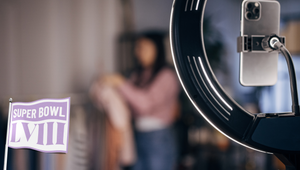
Post-pandemic, What Habits Will Shoppers be Washing Their Hands of Forever?

Alice Woods, UK creative strategist at Momentum Worldwide explores the impact of Covid-19 on consumer behaviour and how it will change shopping and shoppers in the future
This year when the world was unwittingly thrust into a global pandemic and politicians were bumbling and clashing with scientists - it was consumers who got a bad name. Whilst the horrors of the deadly virus unfolded across the world in front of our eyes, the toilet paper and pasta stock-pilers emerged as villains on our front pages. We entered an era of inconvenience and online reigned supreme. Amazon posted first quarter earnings of $75.4bn (over $33m an hour) as we were strictly confined to our homes for the first time in our lifetimes. But as we tentatively ease out of lockdown and into a post-Covid retail landscape, how has the pandemic changed shopping and shoppers?
Brands have more responsibility than ever before. We live in a time where brands are expected not just to serve a purpose, but to have a purpose. Consumers have more information and power now. Brands are expected to behave ethically, transparently and with a social conscience.
Purpose-led brands and purpose-led marketing has continued to grow in recent years but during the pandemic, brands were really put under the microscope by consumers. Recent research found that 81% of consumers strongly or somewhat agree that they will now seek out and buy from brands who have stepped up and provided financial or charitable support during the pandemic. 88% agree that those brands who gave support during, have now improved their perception of them. FMCG giant Nestlé partnered with the International Federation of the Red Cross and Red Crescent society to donate food, medical nutritional products and bottled water to vulnerable people during the pandemic. The brand also deployed local logistical capabilities to support the local work of the IFRC and donated CHF 10 million.
Nestlé weren’t alone with this approach. With animal shelters and animal welfare under a huge strain during COVID - Petfood producer Purina donated over two million cat and dog meals in the EMENA region. It seems it’s no longer a nice to have, but a prerequisite that brands give back. 95% of consumers agree to some extent that it’s up to big name brands to support the local communities in which they operate and work.
On top of wanting to buy from brands who are giving back to their local communities, consumers also valued trust. When asked about private labels, where we might expect consumers to go to for higher quality or more exclusive ingredients, trust was the number one reason to buy. 50% said they would buy based on trust compared to only 18% citing organic or natural ingredients.
However, as always, price is a major factor in any purchasing decision and 66% of consumers still rely on promotional events to save money. 58% say that these will be even more important this year due to the financial effects of Covid-19.
If the scarcity and rigidity of lockdown has taught us anything, it was to appreciate what we have. No longer did life go at a hundred miles per hour and no longer could we grab and go. We slowed down and many of us, took stock. 41% of consumers say that in contrast to before, they will now be making a shopping list. Compare that to a mere 10% of consumers who’ll be researching retailers to see which are rated the safest and 15% who will be seeking out products that are safer or cleaner. It turns out that our priorities are not where we might have expected them to be. So even after an infection that brought the world to its knees, four times as many of us are more concerned about shopping lists than hygiene.
As the supermarkets restricted shopper numbers, it’s no surprise that 87% of consumers were shopping online throughout the height of the pandemic (and lockdown for most). Almost half of consumers, 45%, said they used a grocery delivery service before the pandemic and will continue using after it. Of those clambering for a delivery slot, just 6% of consumers who started using grocery delivery when the pandemic hit said they will continue to use it afterwards. But overall, groceries still topped the charts when shoppers were asked which category they expected to buy more of online once this is over. With only a quarter of respondents saying they actually missed physical grocery stores, could this spell big changes for supermarkets forever, or is this a once in a lifetime opportunity for retail environments to disrupt the status quo? If the pandemic has made shoppers reassess what they need, rather than what they want, is this the time for retailers to rethink not just their role in the new world order, but their duty too? As well as being online, brands have already started to pivot in the real world too. Coca-Cola has created safe-to-touch vending machines and installed antiviral film on 30,000 units in Japan, and small grocers in Uzbekistan are benefitting from the installation of protective plastic shield, courtesy of the brand.
Innovation and creativity thrive in turbulence and this could be the chance for retailers to create a brave new future of shopping.













